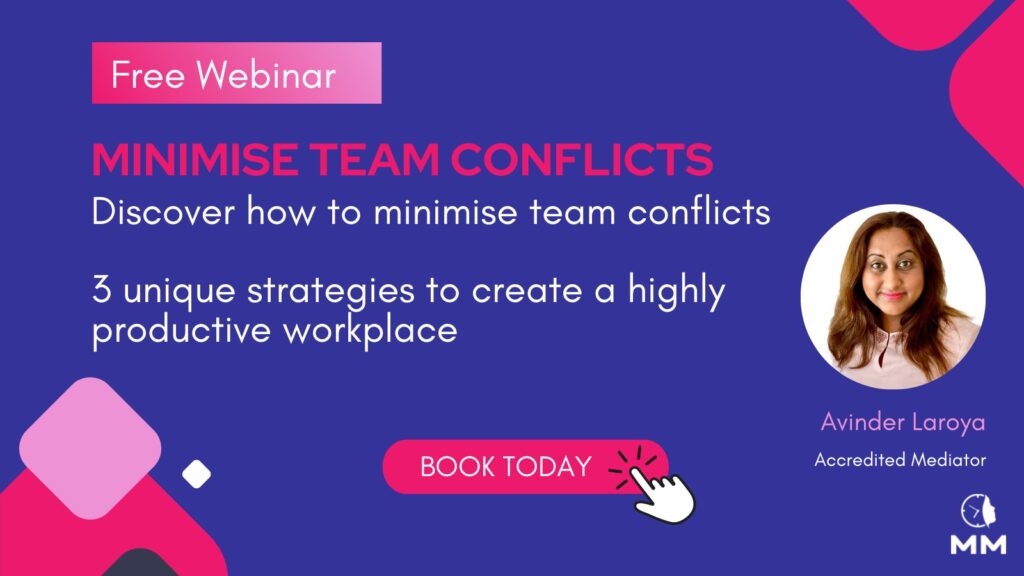The 5 Styles Of Conflict Management
Identifying business conflict behaviours
Conflicts can occur in any setting, and they will inevitably happen. They’re not necessarily a bad thing as they enable growth and transformation. However, it’s how you handle the conflicts that is the key. If you’re managing a team, you’re likely to see conflict arise between the employees you manage; if you’re an entrepreneur, you’re likely to come across a difficult client who can become quite trying. There are several ways of handling conflicts like these and learning about conflict management is key to success when it comes to customer satisfaction.
What is conflict management?
Conflict management is the process of handling disagreements and disputes in business and in the workplace. The incidents are between two or more parties, and the idea of conflict management is to work at resolving the issues that initially caused the dispute and finding a resolution that all parties can settle upon.
Those who undergo professional conflict management training will be able to diffuse the situation successfully and provide an outcome that satisfies all parties involved.
It is very rare that one conflict management style will apply to all situations, but instead, many people adopt the Thomas-Kilmann Conflict Mode Instrument.
The 5 Conflict Management Styles

KW Thomas and RH Kilmann created a model for conflict management styles based on two dimensions: assertiveness and cooperativeness. The 5 different styles take these into consideration, with compromise being in the middle.
As we will take a look at each in turn discover which of the 5 conflict modes you might be using too much or too little to identify your conflict style:
1. Avoiding
This is when you completely ignore the issue – you’re not trying to pursue any of your own goals, nor are you helping the other party achieve theirs. You may be completely pretending the issue doesn’t exist, or you may postpone dealing with the problem all the time and hope it goes away.
This is common if one party thinks the issue is too trivial to bother dealing with or they need a bit more time to think. Alternatively, the avoiding party may realise they have no chance of winning or it could become rather costly to do so, so they just avoid the issue.
2. Accommodating
When you co-operate to a high degree, often at your own expense and putting the concerns of others before your own, this is known as accommodating or giving in. While this looks as though you’re letting the other party “win”, it can prove very useful in maintaining a good future relationship. However, it can also lead to feelings of resentment from the accommodating party if they feel like they were forced to give in.
3. Competing
This would be the most aggressive conflict style and creates a “win-lose” situation. The competing party just stands their ground and refuses to see the viewpoint of the other party. They would continually reject resolution ideas until they get their way.
This is a sure-fire way of alienating the other party and should only be used in emergencies when a decision has to be made very quickly, and you need to stand your ground to get other people on board. While it may have short-term rewards, you are likely to ruin business relationships in this manner.
4. Collaborating
Collaborating is much more “win-win” situation where all parties involved hear each other out and work together to try and achieve their goals. This can prove quite difficult as you would need to make room for everybody’s ideas, and there would need to be a large element of trust involved between the parties.
This is an ideal solution for situations where it is important that the parties involved maintain a good relationship. Usually, those who are collaborators are well-respected people who are admired by many.
5. Compromising
The “middle ground” solution. Very often, people assume that the compromise is the way forward, but it is actually a “lose-lose” situation. All parties must give up something to try and meet in the middle, so there is potential for everyone to be unhappy.
Better would be to find a collaborating solution, but this is not always possible. A compromise often leads to a resolution much quicker, so it is ideal for temporary solutions.
Now that you know about the different conflict management styles, you can perhaps take a look at how you handle situations and work out where you fit in. You can then explore other styles if this doesn’t quite work for you.
Ask An Expert
Did you identify your conflict style behaviour from the list provided above? We offer an evaluation service where you can gain a deeper understanding into your own conflict style to achieve better communication and collaboration in business and the workplace.
Our conflict management tools can help you to discover your own conflict triggers and natural behaviours when in the business environment. Our consultants are certified experts in performance management to help you manage challenges with clarity and move forward with improved awareness, mutual respect and enhanced effectiveness in a mediation or business conflict situation with ease.
We encourage parties to work together to come to a solution that makes commercial sense.
Founding Mediator of Minute Mediation Ltd, Avinder Laroya, is a CEDR trained Commercial Mediator and Arbitrator and has experience of complex cross-border disputes, supporting her clients in considering and agreeing upon the best outcome.
Who Are We?
Minute Mediation is a Mediation and Conflict Management Consultancy, providing mediation and conflict management solutions to businesses around the globe. We continue to support clients in person or with minimal disruption with the use of teleconferencing technology such as Skype and Zoom, whilst saving you time and money compared to a traditional dispute resolution service.
We focus only on commercial matters, ensuring that our expertise is focused and up to date at all times. The pandemic has impacted businesses across the world, but Minute Mediation are prepared to stand alongside our clients to ensure our Mediation and Conflict management solutions are managed efficiently and effectively.
Click here to book your FREE consultation with a Mediator today.


